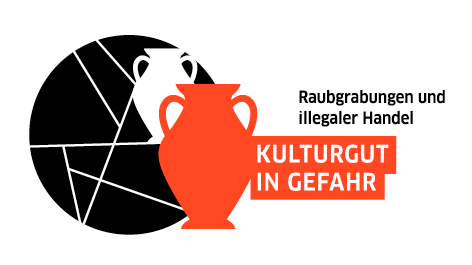Bereichsnavigation
Kulturgut in Gefahr: Raubgrabungen in Afrika
News vom 03.12.2014
Auch die Länder in Afrika haben mit dem Problem der Raubgrabungen und illegalem Handel zu kämpfen. Welche Anstrengungen sie dagegen unternehmen, wird am ersten Tag der Tagung „Kulturgut in Gefahr. Raubgrabungen und illegaler Handel“ von 13.10 bis 13.40 Uhr vorgestellt.

Das Panel wird moderiert von Peter Breunig. Es sprechen Musa Oluwaseyi Hambolu, Solange Laura Macamo und Décio Muianga.
Musa Oluwaseyi Hambolu
Department of History and International Relations, Veritas University, Bwari, Abuja, Nigeria
- teaches early Nigeria’s History at the Department of History and International Relations of Veritas University, Bwari, Abuja, Nigeria
- recently retired as Director of Research, Planning & Publications of Nigeria’s National Commission for Museums & Monuments
- participated in National Commission for Museums & Monuments’ Archaeological research projects at the Chad Basin, Northeast and Nok in Central Nigeria
- Curator of four National Museums in Nigeria in which capacity he participated in many activities aimed at combating the problems of illicit trafficking in Nigeria’s Antiquities
- 2006–2009 President of West Africa Archaeological Association
Abstract
Series of international conferences have established that the plundering of archaeological sites do incalculable damage to our ability to interpret the past and preserve our cultural heritage. The communiques of the conferences catalogue comprehensive strategies for tackling the problem.
What needs to be done now is to get all concerned stakeholders to play their part. If we take the opening statement of the Universal Museums declaration at face value, then we should enlist them in the battle against the plundering of archaeological sites. While we can take it for granted that self-respecting major museums no longer source their materials from the illegal market; they need to go a step further to instigate their governments to make it impossible for illegal antiquities market to thrive.
As calling on government agencies of source countries responsible for stemming the ugly trend might not produce significant results in the short run, thus not having a guarantee that the plundering of sites will stop now, then we cannot but reiterate our call on international archaeological partners to intensify their collaboration with indigenous archaeologists to conduct more excavations.
Solange Laura Macamo
Director of Cultural Heritage in the Ministry of Culture Mozambique
- PhD in Archaeology from Uppsala University
- Director of Cultural Heritage in the Ministry of Culture and part time lecturer of archaeology and heritage management at Eduardo Mondlane University, Department of Archaeology and Anthropology, Mozambique
- Present work is focused on the work, with university colleagues, of protective measures for underwater archaeological heritage, the Zimbabwe type site of Manyikeni and in drafting of immovable heritage regulations and management systems for the whole cultural heritage and particularly for Mozambique Island, UNESCO World Heritage Site
Décio Muianga
- since 2012 Research Coordinator and researcher at Kaleidoscopio – Research in Public Policy and Culture
- 2013 MA in Archaeology Rock Art Research Institute University of the Witwatersrand, South Africa
- since 2008 Lecturer and archaeology researcher at Eduardo Mondlane University
Abstract:
In the end of the 1990s, a generalized activity related to treasure hunting in Mozambique has started to worry the Ministry of Culture. This led the Ministry to the need of establishing a protective legislation of the archaeological heritage. In 1994, the first Regulation for the Protection of archaeological heritage was approved by the Council of Minister. At the same time, Mozambique government joined to the UNESCO efforts to establish the Convention for the Protection of Underwater Cultural Heritage that was approved in 2001. This Convention is, particularly, against the selling of objects, promoting in situ preservation of archaeological finds. The advantages of the ratification of this Convention are also considered in the country, through debates.
This paper presents the importance of the involvement of local archaeologists to help to protect underwater archaeological heritage, with the leading role of the Ministry of Culture, in the scope of the 2001 UNESCO Convention. However, without the necessary international cooperation, a constructive solution will never be achieved, aiming to open new research possibilities particularly at the site intervened in northern Mozambican coast.
Moderation
Peter Breunig
Institut für Archäologische Wissenschaften, Goethe-Universität Frankfurt am Main
- 2004–2009 Sprecher der Forschergruppe 510 (“Ecological and cultural change in West and Central Africa”) der Deutschen Forschungsgemeinschaft
- Seit 2003 Editor/Co-Editor des “Journal of African Archaeology” (www.african-archaeology.de)
- 1998–2002 Sprecher des Sonderforschungsbereich 268 der Deutschen Forschungsgemeinschaft („Kulturentwicklung und Sprachgeschichte im Naturraum der westafrikanischen Savanne“)
- Seit 1992 Professor für Afrikanische Archäologie, Goethe-Universität Frankfurt/Main, Fachbereich Sprach- und Kulturwissenschaften
- 1989 Habilitation, Universität zu Köln, Mathematisch-naturwissenschaftliche Fakultät
Weiterführende Links
- Gesamtes Programm der Tagung „Kulturgut in Gefahr“
- Deutsches Archäologisches Institut
- Deutscher Verband für Archäologie
- Folgen Sie uns auf Twitter: @kulturgutschutz

